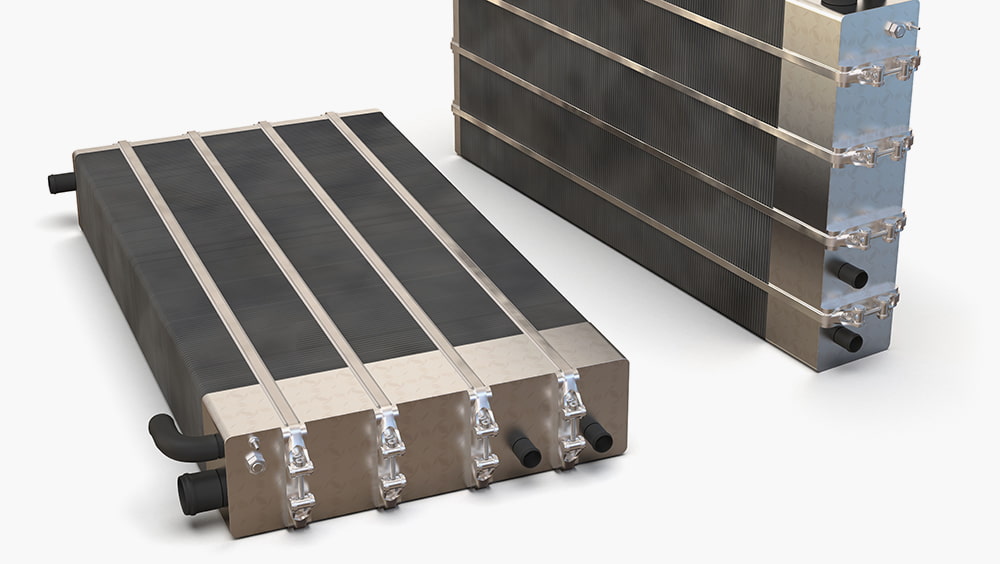SKZ launches research project to reduce manufacturing costs of hydrogen fuel cells
In cooperation with ENTEX Rust & Mitschke GmbH, SKZ is starting a research project for the continuous production of thermoset bipolar plates. If successful, the production costs for this component, which is particularly important in fuel cells, can be drastically reduced.

Low-cost production of thermoset bipolar plates makes fuel cells more competitive. (Photo: frog/stock.adobe.com)
In this project, experts are developing a continuous process for the production of thermoset bipolar plates.
ENTEX Rust & Mitschke GmbH in Bochum and SKZ in Würzburg are jointly developing an innovative and continuous process for the cost-effective production of thermoset bipolar plates as part of a cooperation project funded by the Central Innovation Program for SMEs (ZIM) of the German Federal Ministry of Economics and Climate Protection (BMWK).
"Together with ENTEX, we see great potential for producing bipolar plates more economically using the planetary roller extruder and thus making fuel cells more competitive," says Dr. Andreas Köppel, Group Manager for Crosslinked Materials, explaining the motivation for the project. In order to produce bipolar plates, and thus fuel cells, more cheaply, the project partners want to optimize the manufacturing process. The basic idea of the project is to explore novel, highly conductive formulations that can be continuously processed into bipolar plates in a direct extrusion process. The production will be carried out on a planetary roller extruder, which is particularly suitable for processing highly filled and thermally sensitive materials.
ENTEX will develop a process configuration for the preparation of highly filled compounds with subsequent direct extrusion, while SKZ will develop electrically conductive compounds with very good flow properties. The results of the project can not only help to make the production of fuel cells more time and energy efficient, but also to further establish this technology in the market and thus reduce CO2 emissions.
Hydrogen fuel cells are considered to be a sustainable and efficient energy system, but they are currently in the shadows compared to batteries because the technology is still very expensive. The main reason for this is the high production costs of key components such as bipolar plates, which are manufactured using time-consuming and cost-intensive processes.
Learn more about researching cross-linked materials

